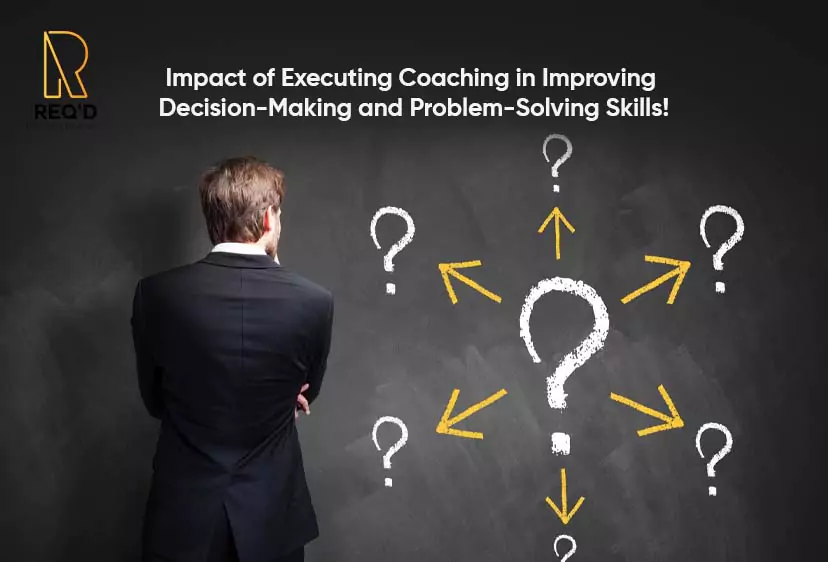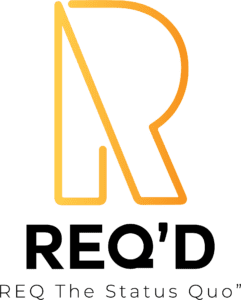Executive coaching is an empowering mentor for professionals looking to reach their best potential and advance their careers. This story centers on executive coaching, a dynamic and individualized process of development that has a profoundly transformational effect on individuals and businesses.
This blog will clarify the subtle differences between executive coaching and other types of professional development. Through an exploration of the advantages of executive coaching, the handbook reveals how it may promote both professional and personal development, improve leadership abilities, and sharpen decision-making sense. Readers get insights into how executive coaching has sparked significant career transformations and instilled confidence and direction through gripping success stories and case studies.
The guide walks readers through the practical aspects of selecting the ideal executive coach, highlighting the significance of compatibility and trust. It also covers issues like imposter syndrome, changing careers, and developing resilience, offering helpful solutions to overcome these obstacles.
The handbook explores the applicability of executive coaching in the remote work era, tailoring tactics to virtual settings and tackling particular leadership difficulties as the workplace changes. After the story, the future of executive coaching is imagined, new trends are examined, and professionals are urged to actively realize their potential. “Embrace Your Potential” is a call to action that encourages people to set out on a life-changing path that crosses barriers in the workplace and results in long-term professional success.
Key Takeaways: Finding the Right Executive Coaching for Career Growth!
- Assess the coach’s ability to communicate effectively and offer helpful criticism. A fruitful coaching partnership requires open and honest communication.
- Make the commitment requirements and cost structure clear from the outset. Ensure the amount of money spent fits the duration of the coaching relationship and the anticipated results.
- Find out how successful the coach has been with prior clients. An established track record of enabling successful career transitions is a reliable sign of a credible coach.
- Look for coaches who have a thorough understanding of your particular profession and sector. Industry-specific expertise improves the coach’s capacity to handle problems particular to your line of work.
- Select a coach who exhibits adaptation and flexibility in their coaching style. An engaging coaching experience is enhanced by the coach’s capacity to adjust techniques in response to changing needs.
- Before hiring an executive coach, clearly state your goals for both your career and personal life. Determine particular areas that correspond with your goals for development or progress.
- Look at potential executive coaches in great detail. Please take into account their background, coaching style, and experience. Look for endorsements or testimonies from prior customers.
- Make trust and compatibility the determining factors. Arrange for initial encounters with prospective coaches to evaluate the level of comfort and communication style.
- Verify if the coach has the necessary executive coaching degrees and certifications. Check if they belong to any professional coaching associations.
Understanding Executive Coaching in the Light of Career Boost!

A crucial first step in achieving professional and personal development is comprehending the executive coaching dynamics. This manual delves into the transforming power of executive coaching, highlighting its subtle aspects and outlining how it might affect a person’s career path.
What Executive Coaching Is Not
A customized development method, executive coaching aims to improve decision-making, strengthen leadership abilities, and promote general professional development. It offers a customized approach to satisfy the specific needs of people navigating challenging job landscapes, going beyond traditional training.
Components and Principles:
This part explores the fundamental elements and tenets of executive coaching and dissects the strategies used by professional coaches. Gaining a grasp of these concepts offers a road map for optimizing the advantages of the coaching relationship, from goal-setting and assessment to ongoing feedback.
Advantages for Career Development:
The handbook explains the several advantages executive leadership coaching offers for advancing one’s career. The main benefits that lead to a significant career boost are enhanced problem-solving abilities, increased leadership aptitude, and personal and professional development.
Getting Around the Coaching Process:
Understanding goal-setting, personalizing coaching plans, and the value of ongoing feedback are all part of exploring the executive coaching journey. This part gives people the tools to take an active role in their coaching experience and get the most out of it.
Actual Cases:
This resource illustrates how career transformations have been sparked by executive coaching through real-world case studies and success stories. These instances highlight the real effects of coaching on people in various professions and sectors.
Benefits of Executive Coaching for Personal and Professional Development!

A dynamic and individualized approach to professional and personal development, executive coaching offers people a life-changing path toward realizing their most significant potential. This section explores the many advantages executive coaching offers, which go beyond conventional paths for professional development.
Tailored Development Plans:
Individuals can receive customized growth plans based on their skills, difficulties, and objectives through executive coaching. Together, clients and coaches discover areas for growth, create methods that support personal and professional goals and set meaningful objectives.
Improved Leadership Abilities:
Developing and improving leadership abilities is one of the main advantages of executive coaching. Coaches assist individuals in crafting a leadership approach that aligns with their principles, promotes efficient communication, and cultivates a favorable and impactful organizational outcome.
Optimal Decision-Making:
People improve their decision-making techniques through focused coaching sessions. A coach can help people identify their prejudices, explore many points of view, and gain the confidence to make wise decisions. The optimization of decision-making plays a significant role in the effectiveness of professionals.
Enhanced Emotional Intelligence:
The cultivation of emotional intelligence is a critical component of executive coaching. Coaches help people develop effective interpersonal relationships, empathic leadership, and emotional awareness and management. Enhanced emotional intelligence improves teamwork and the workplace as a whole.
Goal Achievement and Accountability:
By breaking down significant goals into smaller, more achievable ones, executive coaching helps people define and achieve them. As accountability partners, coaches help people stay on course, recognize their successes, and overcome challenges.
Confidence Building:
An essential result of executive management coaching is a rise in self-assurance. Employees get greater self-assurance when they realize their assets and skills. Taking on challenges, assuming leadership responsibilities, and achieving personal and professional success depend on confidence.
Enhanced Self-Awareness:
A thorough examination of self-awareness is made easier with executive coaching. A coach helps people make sense of their beliefs, drives, and actions. Self-aware people can better make decisions that are true to who they are, enhancing their sense of contentment in both their personal and professional lives. For both professional and personal development, visit Req-d.com and let your career prosper to the fullest.
Impact of Executing Coaching in Improving Decision-Making and Problem-Solving Skills!

Executive coaching is a potent stimulant that improves decision-making and problem-solving abilities, giving people the tools and perspective they need to handle challenging situations successfully. This revolutionary approach surpasses conventional instruction by providing tailored tactics and understandings that promote an elevated competence in making decisions and solving problems.
Tailored Approaches:
- Coaches work with clients to comprehend their preferences and manner of decision-making.
- Strategies specifically designed to target areas for improvement and build on strengths are created.
From an Objective Angle:
- Coaches offer a third-party, impartial viewpoint on decision-making procedures.
- People learn about the prejudices, presumptions, and blind spots that could influence their decisions.
Evaluation and mitigation of risks:
- Coaches assist people in evaluating the risks involved with various choices.
- Strategies are designed to minimize possible risks and maximize favorable results.
Analyzing scenarios:
- Scenario analysis is a tool used in executive coaching to foresee possible obstacles and possibilities.
- People are taught to base their decisions on thoroughly comprehending all possible consequences.
Developing Resilience
- Coaches aim to build resilience in the face of uncertainty and failure.
- People learn to be capable of making thoughtful choices under pressure.
Effective Methods for Solving Problems:
- People who receive leadership coaching services are exposed to various problem-solving methods.
- Coaches assist in applying organized approaches to analyzing and resolving complex problems.
Confidence in Making Decisions:
- The process of coaching helps people develop self-assurance in their capacity for making decisions.
- People can make judgments with conviction and clarity by learning to trust their judgment.
Constant Feedback Cycle:
- A constant feedback loop is established through executive coaching to improve decision-making abilities.
- Constant evaluations and dialogues support continued progress.
Insights on How Executive Coaching Transforms Career!

With the ability to give professionals individualized counsel to help them reach their full potential and manage the intricacies of their professions, executive coaching has become a revolutionary force in the workplace. This thorough investigation explores how executive coaching can catalyze significant career changes and lead people to achieve previously unheard-of levels of success.
When it comes to career growth, executive coaching is a game-changer. Executive coaching enables professionals to navigate their careers with confidence and resilience by offering clear goals, strategic skill development, improved leadership presence, effective communication strategies, support during career transitions, overcoming imposter syndrome, creating networks, and prioritizing holistic well-being. People who go through this life-changing experience succeed professionally and develop a mindset that allows for ongoing development and flexibility in professional environments.
Goals and Vision Clarity:
Through the process of profound introspection, an executive coaching program helps people clarify their overall vision and professional aspirations. Together with their customers, coaches define goals, areas of strength, and growth opportunities. This clarity is the cornerstone for focused professional development and thoughtful career planning.
Development of Strategic Skills:
Identifying and developing strategic talents is a fundamental component of executive coaching leadership development. Coaches evaluate their clients’ present skill sets and help them develop new ones necessary for advancing their careers. Professionals can remain competitive in a job market that is constantly changing thanks to this focused skill development.
Enhanced Leadership Presence:
Developing a leadership presence is a critical component of executive coaching. Individuals gain the ability to inspire others, communicate clearly, and project confidence through focused coaching sessions. Especially in leadership positions, this improved leadership presence is essential for career progression.
Effective Communication Techniques:
In any employment path, practical communication skills are essential. Executive coaching aims to help people improve their communication skills so they can persuade others, influence stakeholders, and handle interpersonal situations gracefully. Good communication develops into a potent instrument for professional success.
Strategic Decision-Making:
Professionals can refine their decision-making skills with the help of executive coaching. Coaches offer structures for making strategic decisions, making weighing the benefits and risks easier. This ability is essential for people navigating leadership roles and positions of more responsibility.
Handling Career Transitions:
Many professionals go through career transitions, which might involve switching to a different role, industry, or organizational structure. During these changes, executive coaching offers specialized support that enables people to overcome obstacles, adjust to new surroundings, and take advantage of new opportunities.
Overcoming Imposter Syndrome:
Executive coaching is a typical strategy used to help high achievers overcome the feeling of imposter syndrome. Coaching goals are building self-confidence, highlighting personal accomplishments, and changing negative self-perceptions. Resolving the imposter syndrome is essential for long-term success and career progression.
Establishing a Network and Influence:
Professional influence and networking are significant, and executive coaching recognizes this. Coaches help people create and maintain deep relationships by offering advice on growing their network and making a more significant impact in their field.
Comprehensive Wellness:
Executive coaching understands the role of a person’s overall health in achieving professional success. Coaches deal with stress management, work-life balance, and general mental health to ensure people are prepared to manage the demands of their employment and have sustainable, healthy lifestyles.
Determining and Honoring Achievement:
Success measurement techniques are incorporated into executive coaching. Together, clients and coaches identify crucial performance metrics and recognize accomplishments. This success celebration inspires people to keep moving forward and supports an optimistic outlook.
Conclusion:
In a nutshell, executive coaching can help people realize their full potential and change their careers. It is an empowering and transformative process. By exploring customized development plans, improved leadership abilities, and efficient decision-making methods, people acquire the capabilities required to maneuver through the intricacies of their career paths. Building resilience and confidence together via executive coaching lays the groundwork for long-term success. Accepting this life-changing process lets people grow personally and professionally, eventually enabling them to reach their full potential in the ever-changing field of work.








